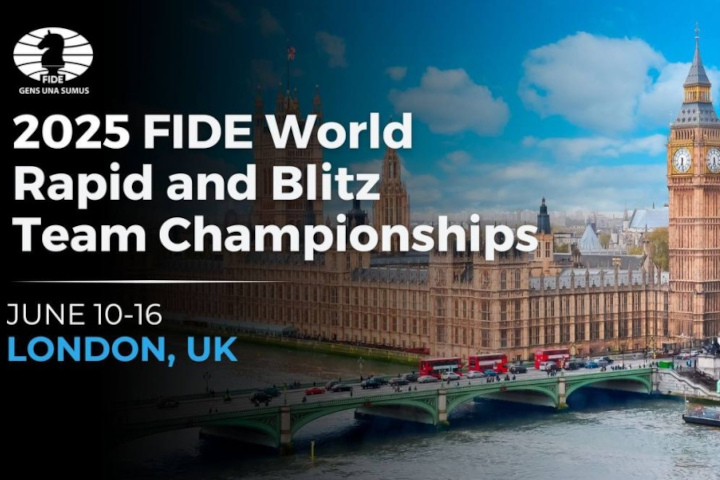Chess, a game revered for its timeless strategic depth and intellectual rigor, has long been synonymous with patience and protracted battles of wit. Yet, in an era where attention spans shorten and schedules tighten, the venerable format of classical chess often struggles to fit into modern life. Recognizing this evolving landscape, FIDE, the international chess federation, has launched a compelling pilot project: the “Fast Classic”. This initiative aims to bridge the gap between traditional chess values and contemporary demands, introducing shorter time controls that will nonetheless count towards the coveted standard rating.
The Classical Conundrum: Time vs. Timeliness
For decades, a game`s eligibility for a standard rating hinged on significant time commitments. Current FIDE regulations mandate time controls that ensure deep thought and intricate play, often extending matches for hours. For instance, a game involving a 2400+ rated player requires a minimum of 120 minutes per player for 60 moves – a considerable investment for both participants and organizers. While this preserves the “purity” of classical chess, it inadvertently creates barriers to participation, particularly for amateur players, juniors, and even professionals navigating packed calendars. The demand for a more accessible yet equally serious format has been steadily growing, echoing a universal trend towards efficiency.
Enter the “Fast Classic”: A New Hybrid
The core of FIDE`s pilot lies in a specific adjustment to time controls: tournaments will feature games played at 45 minutes plus a 30-second increment per move, starting from move one. This meticulously chosen structure aims to accelerate play without devolving into the rapid-fire decision-making characteristic of rapid or blitz chess. The increment, a crucial element, ensures that players still have time to think critically in complex positions, preventing the clock from becoming the primary adversary in the endgame.
Three prestigious events have been selected to test this innovative format:
- The Qatar Cup (September 7–13)
- The QCA Training Center September Tournament Classical (September 25–27)
- The Women`s World Team Championship (November 17–24)
While these tournaments will directly influence players` standard ratings, FIDE has implemented specific conditions to manage expectations and initial impact. Notably, no title norms (e.g., Grandmaster or International Master norms) will be awarded during these pilot events. Furthermore, organizers are restricted to scheduling no more than two rounds per day, ensuring that even with reduced game times, the competitive intensity remains manageable.
The Genesis of Speed: A Patron`s Vision
The concept of “Fast Classic” didn`t emerge in a vacuum. The original impetus came from Oleg Skvortsov, a prominent chess patron and organizer known for his involvement with events like the Zurich Chess Challenge. Skvortsov advocated for events where rounds could be completed within 2 to 3 hours, making it feasible to hold two rounds in a single day. This practical suggestion resonated deeply within the chess community, addressing a clear logistical challenge for organizers and a time constraint for players. It’s a testament to the idea that innovation can often spring from direct, real-world observation and a desire to improve accessibility.
More Than Just Shorter Games: The Potential Impact
The “Fast Classic” isn`t merely a cosmetic change; it represents a strategic shift with multifaceted implications for the chess world. The most immediate benefit is enhanced player accessibility. Busy professionals, students, and enthusiasts who might shy away from multi-day classical tournaments can now engage in serious, rated play. For juniors, it offers invaluable experience in a formal setting without the exhaustive demands of traditional classical time controls.
From an organizational perspective, the format opens doors for more frequent and larger tournaments. The ability to host two standard-rated rounds in a day significantly reduces event duration and associated costs, making competitive chess more viable for a wider range of hosts. This could lead to a proliferation of rated events, providing more opportunities for players to gain and maintain their FIDE ratings.
The oxymoron “Fast Classic” might sound like a paradox, yet it encapsulates FIDE`s delicate balancing act. It`s an acknowledgment that while the soul of chess resides in deep calculation, its survival and growth in the 21st century require adaptability. This hybrid format could redefine what a “standard” game feels like, fostering a generation of players adept at high-level play under pressure, perhaps even refining their strategic intuition in novel ways.
Navigating the Future: FIDE`s Cautious Approach
FIDE understands the gravity of this undertaking. The standard rating system is the bedrock of competitive chess, and any alteration must be approached with utmost diligence. The pilot events are designed as a controlled experiment, a real-world crucible where the benefits and potential drawbacks can be rigorously assessed. Following their conclusion, FIDE plans a comprehensive analysis of the outcomes and, critically, will gather feedback directly from participants and organizers.
The questions are manifold: Will the quality of play be preserved? How will players psychologically adapt to maintaining classical depth within a tighter timeframe? Will this new format attract a new demographic to competitive chess? FIDE`s commitment to a thorough review before any wider implementation demonstrates a responsible and forward-thinking approach to an initiative that could genuinely reshape the competitive landscape.
The “Fast Classic” stands as a bold statement from FIDE: tradition and progress are not mutually exclusive. By embracing innovation, the federation seeks to ensure that classical chess remains vibrant, accessible, and relevant for generations to come, proving that sometimes, the fastest way forward is to thoughtfully accelerate tradition.

